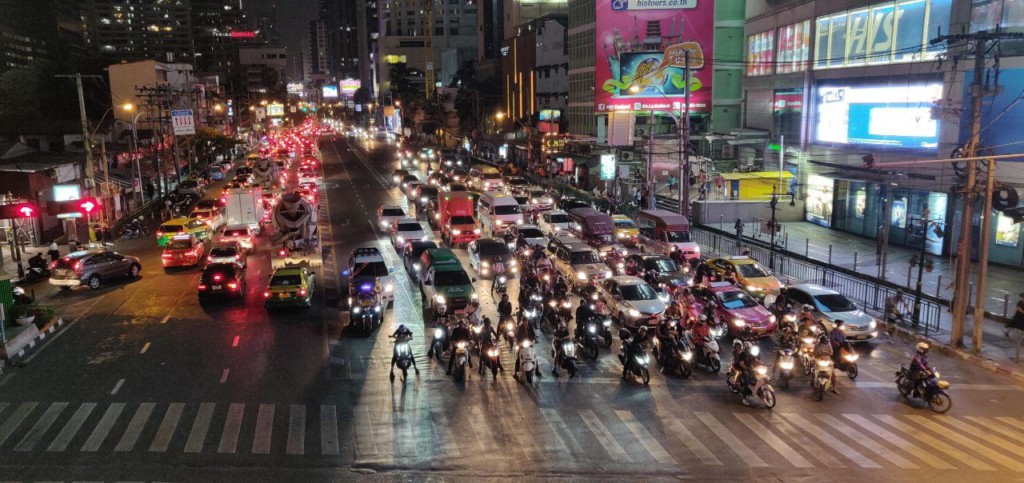
Traveling around the world has shown me why we need Blockchains and distributed ledgers. Not in a spiritual, but in a practical way. Having had ten flights within the last ten weeks revealed a few perspectives, obstacles and chances to me that I want to share. Specifically, how the Blockchain can help to overcome the obstacles.
Is the world one space of human beings or a separation of continents?
When it comes to culture, there is a variety of them. Speaking about the needs we have, the translation we use and the infrastructure we rely on – they connect us all together, making the world to one space of human beings. More concrete: The world we live in allows us to integrate into almost all regions and cultures. Flights are affordable, language barriers can be overcome by modern translators and culture is adaptable.
Why Blockchains and distributed ledgers change our planet for better
I’ve been traveling through Europe and two times to Asia within the last 4 weeks. And it feels seamless – you can be in the opposite part of the world in 10 hours, leave the plane, book a stay and order a taxi to it with your smartphone and within another hour you already entered your place to sleep for the night. Almost everything scheduled and booked through your smartphone.
So, why is there still a need for new technologies to dramatically change the way different continents, cultures or countries interact with each other?
Traveling can be an entertaining activity – however, everybody knows the effort that is involved in finding, booking and coordinating the journey. In many cases, traveling can be made easier by using distributed ledgers instead of databases. Imagine a world in which organizing travels takes half the time it takes nowadays.

The data on our planet is unconnected
As connected as we human beings seem to be nowadays, our data is not. And that’s a truly bad fact. Just remember the last time you traveled to another country and keep the services that you used in mind. Let’s keep it simple with the following example:
- You booked the flight on a third-party booking website.
- You booked the hotel on a third-party booking website.
- You traveled by train to the airport.
- You bought a bottle of water with your credit card at the airport.
- At the destination airport, you bought a local SIM card.
- At the destination airport, you ordered a taxi with a ride-sharing application.
Well, doing all those steps is a necessary thing. Of course, specific platforms could help you combine several bookings and help you do it faster, but what’s most obvious in the scenario here is: Every party has its own copy of your data.
Your hotel booking website, your flight booking website, your train company, your credit card banking provider, your mobile service provider and even the ride-sharing application. Not enough with that: Oftentimes you entered all your data on a hotel booking website and as soon as you arrive at the accommodation, you are asked to enter the same (!) data a second time or confirm it.
This massive redundancy of data, first of all, creates a process of hassle for customers but causes many more economical problems.
Centralized systems can waste millions or billions
1) Usability
Usability is key – there is no doubt regarding the fact that companies can gain a relevant competitive advantage due to feasible user interfaces and a seamless process. Numerous fintech companies have been proving that by reaching a large market share with organic growth. Even taking the single fact of usability which is lost due to the redundant collection of data, that is a point in which millions of dollars can be lost.
2) Inconsistency
Centralized and closed systems of different companies literally invite data inconsistency to occur. Taking the travel process as an example, the customer could make a mistake when entering his data manually several times. And more important is that once his data changes, the user is in charge to inform every stakeholder about e.g. his changed address. When even for a journey we have five parties collecting our address, how many parties are there in our life that we are supposed to inform? It is as difficult to count them as it is for a user to inform all of them. It would be a wonder if no inconsistencies occur.
3) Process throughput
Most obvious about how money is wasted by using centralized instead of decentralized systems is the manual work that is done. It simply creates more costs if you collect customer data every time instead of loading them with one click into your system.

The Blockchain: Solving the global chaos of data?
It is easy to just say the Blockchain will heal all wounds as it is often done. However, let’s have a look at all three challenges listed above and how the Blockchain can overcome them:
1) Usability
A Blockchain does not guarantee Usability. Oftentimes projects even implement a distributed ledger and ruin the user experience by designing the process in a technical way, not in a human one.
By using a decentralized system in which data such as an address could be stored, the user should be able to give e.g. a hotel booking website access to his address by one single click. The time that is needed to book accommodation reasonably drops.
2) Inconsistency
If the address of a user changes, it will be updated once. The next time a hotel booking is made, he just grants the booking website access to the latest address he stored.
No redundancy, no inconsistency, no extra work to fix inconsistencies.
3) Process throughput
How much time does it save a busy hotel when the customer data is extracted from his booking and he simply checks in by showing his passport? This is the case in many hotels all over the world, however, it is also not in others. Less manual work, happier employees.
Want to learn everything about security tokens and STOs? Get my book “Assets on Blockchain” – the standard book about security token offerings (STOs) on AssetsOnBlockchain.com
How to get real results by implementing Blockchain
It seems like integrating a Blockchain enables to grab low hanging fruits and activate the enormous potential within an existing business.
Be cautious.
Many projects step backward by implementing a Blockchain or a distributed ledger. They focus on technical aspects and put the user last. Their services get more inaccessible than before and the user experience decreases.
Furthermore, Blockchain is often used as a term for changes that do not require a Blockchain at all. Transforming a paper-based process to a fully fitted process does not necessarily justify the use of a Blockchain.
The key is: Elaborate the real value of a distributed ledger first, don’t sacrifice the existing process and put the user first – not the technology.
Safe travels!

